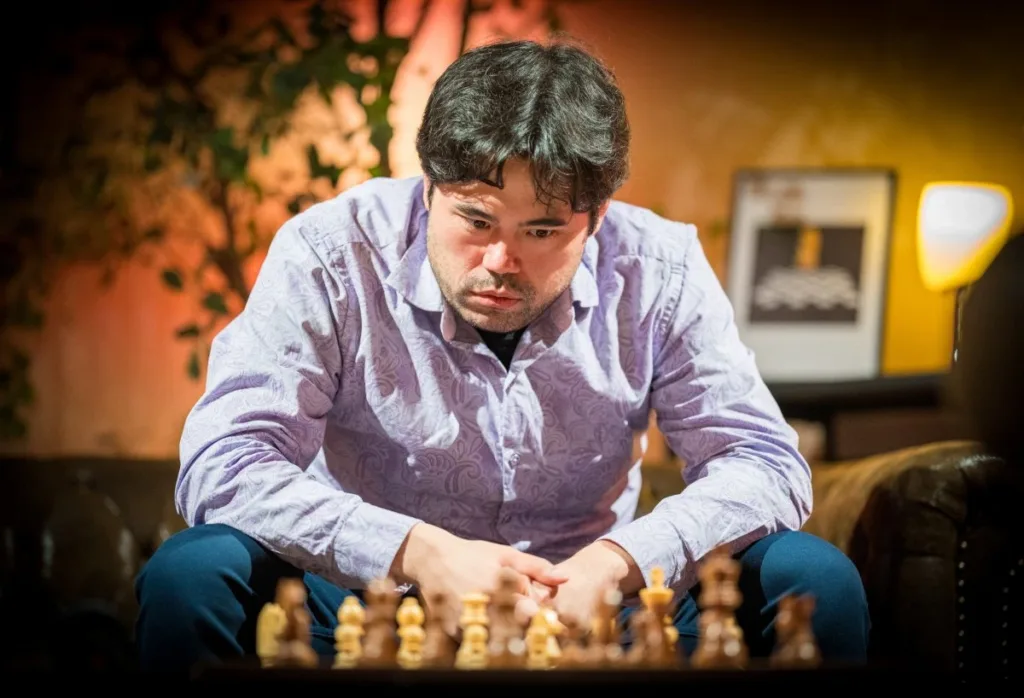Hikaru Nakamura has finally said what many in the chess world have suspected for months: he’s likely done with Freestyle Chess.
“Will I play the Freestyle Chess Grand Slam in South Africa? Very unlikely. I don’t think I’ll be playing. I mean, truth be told, I don’t think I’ll be playing any more Freestyle Chess events. I don’t want to get into it right now, but yeah.”
— Hikaru Nakamura, stream on Aug 5
With that quiet but pointed statement, the world number three signaled what could be the end of his participation in one of the most talked-about chess formats of the modern era. His departure, if finalized, would be a serious blow to the Freestyle Chess Grand Slam Tour – a series that has leaned heavily on his presence both for media attention and competitive legitimacy.
From Contender to Critic
Nakamura’s relationship with Freestyle Chess (also known as Chess960) has been a rollercoaster. Though initially supportive and actively involved, his stance began to shift over the course of the 2024–2025 season. His criticisms ranged from poor organization and opaque rules to questionable practices, such as forcing eliminated players to perform commentary under threat of reduced prize money. He also questioned the tournament’s legitimacy, especially after the FCPC declared the Grand Slam winner a “world champion” without FIDE’s endorsement.
Despite solid results, finishing 5th in Wangels, 2nd in Paris, and 4th in Las Vegas, Nakamura increasingly became more of a critic than a champion of the series.
“If we change the rules every event, it’s hard to know what we’re playing for,” he said after the Paris Grand Slam.
One of the most pointed criticisms, though, came more recently, where he suggested that Freestyle Chess appears to be built around one person: Magnus Carlsen. While he didn’t name him directly in the clip, Nakamura all but stated that the entire setup of the tour seemed to revolve around Magnus getting what he wanted, even when other top players like Fabiano Caruana and himself voiced disagreement.
It’s an accusation of imbalance: that the format, schedule, and even match structure are overly influenced, if not outright dictated by Carlsen and his circle.
“It feels like the event is for one person, and that person calls all the shots,” Nakamura implied.
While Carlsen sees this flexibility as a feature, an embrace of creative freedom, Nakamura has warned that too much improvisation risks turning the format into a spectacle, not a sport.
The Final Straw?
His Aug 5 statement comes just four months ahead of the next major stop: Freestyle Chess Grand Slam – Cape Town, scheduled for December 5–12, 2025. With a prize pool of $660,000 USD, the event was set to be one of the most lucrative of the tour.
According to Liquipedia, the event will follow a hybrid format:
- Group Stage (Dec 5–6): 10-minute games, double round robin
- Knockout Stage (Dec 7–12): Classical time control (90 minutes + 30s increment)
Despite the return to longer time controls, something Nakamura has often advocated for, his comments suggest that organizational philosophy, not format, is the core issue.
More Than Just a Personal Choice
Nakamura stepping away would not only impact the player field but could send ripples through the broader chess community. As one of the most influential voices in the game, online and offline, his exit could spark a wider reevaluation of Freestyle Chess’s future.
“Freestyle Chess is being shaped more by marketing than chess logic,” he once said. That sentiment now seems more than a critique. It’s a conclusion.
This is a message. A message to organizers, investors, and fans: innovation without structure, entertainment without integrity, risks alienating even its strongest early supporters.
Looking Ahead
Whether Nakamura’s departure is final or just temporary remains to be seen. But one thing is clear: Freestyle Chess is at a crossroads. Its growing pains are real, its spotlight bright, but without buy-in from players like Nakamura, its long-term credibility could be at stake.
Meanwhile, the chess world watches as Carlsen, Buettner, and the FCPC try to push forward. The Cape Town Grand Slam may go on without Hikaru Nakamura. But it will not be the same.
Author’s Note: Nakamura’s potential withdrawal from Cape Town marks a turning point in his long-running tension with Freestyle Chess. His criticisms are now consequential. Whether Freestyle adapts or doubles down will shape the next chapter in chess’s evolution.
Updated: Hikaru Nakamura official skipped the 2025 Freestyle Chess Grand Slam Finals in South Africa.
I’m the senior editor of Attacking Chess, a keen chess player, rated above 2300 in chess.com. You can challenge me or asking questions at Chess.com.

